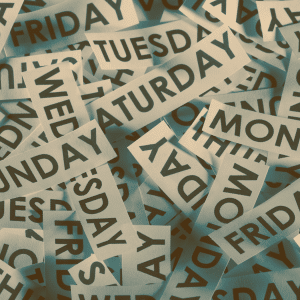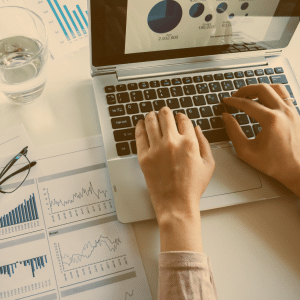We pride ourselves in executing high-ROI experiential marketing events and retail demos. As much as we’d love to say ongoing, high-performing execution comes naturally to us, that wouldn’t be truthful. It actually takes a lot of work to deliver consistent results. A LOT of work. We spend hours each week poring through data, both quantitative and qualitative, to ensure we are delivering the best results possible. That’s the bad news. The good news is any brand can use the tips below to ensure their retail demos and experiential marketing events are executed the highest possible quality.

1. We review sales/performance.
Our team evaluates the sales/performance of our brand ambassadors. Low performers are required to attend a sales coaching call with their account manager. We dig into the cause of the low performance. If they do well on another account, but struggle with this one, perhaps they need more training on the product or maybe this product just isn’t the right fit. If they are a new hire, we evaluate their approach. Is it outgoing and friendly? Do they ask for the sale? If the performance doesn’t improve after the sales call, we remove the brand ambassador from the program and find someone who is a better fit.
2. We do spot checks.
Our team contacts the store for feedback on each of our rep’s first three events. Why? Because unfortunately, not everyone is honest and hard-working, and we want to weed those people out as quickly as we can. Usually when we call, the stores appreciate that we care deeply about how their demos are going. They are happy to share if the person is outgoing, knowledgeable, helpful in restocking, or if we missed the mark.
3. We verify sales bonuses.
On most of our programs, when a brand ambassador hits their sales target, they get a $5/hour bonus. We love this win/win situation for the brand and the HFA brand ambassador. What keeps our brand ambassadors truthful when reporting their sales? We verify sales with the store for at least 50% of the events where a sales goal was said to be hit. We don’t get a lot of untruthful data, but when we find it, we dig further to see if it’s a reporting issue or an ethics issue.

Are our brand ambassadors scheduling their retail demos or experiential marketing shifts at the best time? If they report that the venue is slow, but schedule on that same day for their following event, we ask them to explain the rationale with the dates they suggested. We work with them 1:1 to ensure their shifts are scheduled at the optimal time.
5. We read event reports thoroughly.
Our brand ambassadors are very good at telling us what’s going on at their events. When they need additional supplies, a competitor is offering a BOGO, or a store is having trouble with their order, we usually see this on the event reports. By reading these reports thoroughly and highlighting key information in our client communication, we can resolve issues quickly and provide more value to our clients.

We expect our sales/performance to improve over time. If it’s not, we take a deep dive into the program to figure out where we can improve. Training, venue selection, brand ambassadors, the timing of the events, etc., are all areas we evaluate.
Whether you’re doing an involved sponsorship activation or a retail demo, every experiential marketing event matters. The steps above will help you tweak your personnel, timing, and processes where needed so you can know you are getting the most out of your activations.
Were there any steps in the list above that surprised you? If so, which one(s)?




